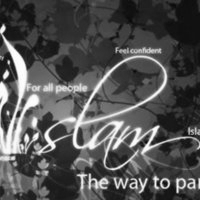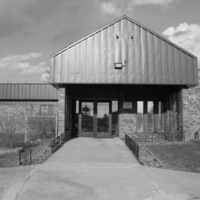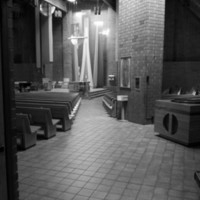Muslim
Islam is the world's second-largest religion behind Christianity and was founded in the 7th century CE by Muhammad, whom Muslims regard as God's messenger and final prophet. Islam spread quickly under different caliphates, dynasties, and empires as a religious and political source, creating growth in trade and knowledge. Scholars have argued that the rich developments in the arts, sciences, and theology in the Muslim world served as a foundation for the European Renaissance. Islam recognizes other prophets like Abraham, Moses, and Jesus Christ. The Quran is Islam's holy text and considered the direct word of God, unlike the narratives in the Holy Bible or the Torah. Collections of hadith, or sayings of Muhammad, serve as secondary texts and Islamic law is called Shariah. Sunni and Shia are the two primary denominations of Islam and arose out of controversy regarding Muhammad's rightful successor as leader of the ummah or Muslim world. For Sunni Muslims, which make up the vast majority of the world's Muslims, there are Five Pillars of Islam: shahadah (profession of faith), salat (prayer five times a day), zakat (almsgiving), sawm (fasting from sunrise to sunset during the month of Ramadan), and Hajj (pilgrimage to Mecca). For more information, please visit the Pluralism Project's pages on Islam.
Minnesota boasts a population of nearly 80,000 Somalis, the largest Somali community in the world outside of Somalia. Somalis are predominantly Sunni Muslim and about 80% of Minnesota's Somalis live in the Twin Cities, especially in the Cedar Riverside neighborhood of Minneapolis. Many fled Somalia to escape the brutal civil war that consumed the country in the 1990s and has continued into the 21st century. African immigration to Minnesota increased 620 percent in the '90s as the United States began offering visas to Somali refugees in 1992. Legislation and resettlement programs established in the 1970s to assist refugees from communist takeovers in southeast Asia have also helped Somalis find a new home in Minnesota. Limited English proficiency is a problem for Somalis in Minnesota and they have created community organizations to address such issues, as well as dilemmas related to educational, economic, and housing opportunities.
Minnesota Muslims face challenges related to their faith in a world after the terrorist attacks of 9/11 and Somali Muslims in particular face associations with Somali terrorism and piracy. The community has been scrutinized for publicized incidents of recruitment to terror cells and in turn has promoted de-radicalization programs, maintaining that Islam is a religion of peace and continuing to educate Americans about their faith and ways of life. Somalis have relocated to Minnesota from eastern Africa or other locations in the U.S. because of its opportunities, hospitality, and the strong connections and networks that they have in the state with friends, family, resettlement organizations, and local mosques. Poverty is an issue for many Somalis in Minnesota, and many initially found work in low-wage jobs at meat packing plants, sending remittances to family in Somalia, but small Somali businesses in the Twin Cities have blossomed. Somalis face trauma from the civil war, horrendous conditions in east African refugee camps, and the shock of transitioning to American life. Many Minnesotans are unfamiliar with Islam and its essential beliefs and practices, and some religious obligations, such as salat, are hard to fit in with American culture and work schedules. Other tenets of their faith, such as avoiding alcohol and pork, and women wearing a hijab, are also more difficult in an American and Midwestern context. As Somalis adjust to life in Minnesota, younger generations take full advantage of opportunities for education and civic engagement, creating a new home for themselves as they maintain connections to Somalia and preserve their language and cultural traditions.
Masjid An-Nur

During one of my site visits to Masjid An-Nur, I was outside the mosque taking pictures when an African-American woman...
Abubakar As-Saddique Islamic Center

Abubakar As-Saddique Islamic Center is the only mosque in Faribault, Minnesota. Predominantly Somali, it is a vibrant site of Muslim prayer,...
Muslim Funerals and Burials in the Twin Cities

The presence of Muslims in Minnesota can be traced back as far as the 1880s. While the history of Muslims...
Muslim Community Center of Minnesota

The Masjid Al-Rahman, or Muslim Community Center, is located in Bloomington, a medium sized city in Minnesota, south of Minneapolis,...
History of Faribault

An exhibit on the history of the town of Faribault, from the 19th century until today.
Joint Religious Legislative Coalition

Interfaith political advocacy organization between Protestants, Catholics, Jews, and Muslims
Unpublished Exhibits
Religion and First Amendment Law

Information and fieldwork related to the Free Exercise Clause and Establishment Clause Kayla Jackson, Sara Klugman, Will Yetvin, assist.
Islam, Health, & Translation

Deeq Abdi, a medical translator, works in different clinical settings around the state of Minnesota. He divides his time between...
Islam in Faribault

There are seven exhibits: Somali Muslim Communities of Faribault Abubakar As-Saddique Islamic Center Personal and Community Health Care in Faribault Islam, Health, & Translation Faribault...
Somali Muslim Food Culture

Building Community in Central Minnesota

This site explores the issues regarding Islamophobia and discrimination against Somali Muslims in St. Cloud, Minnesota and efforts by local...
Somali Muslim Communities of Faribault

Faribault is a small town of nearly 30,000 residents located in southeastern Minnesota just fifty miles south of Minneapolis and...
Security in the Muslim Community

Masjids are multifunctional spaces for Muslims across the world. They serve as spaces to pray, both individually and communal, to...
Masjid Al-Huda

The Islamic Cultural Community Center: Masjid Al-Huda, is a Sunni mosque in Northeast Minneapolis. This exhibit explores the setting and...
Listen to Minnesota Religions


